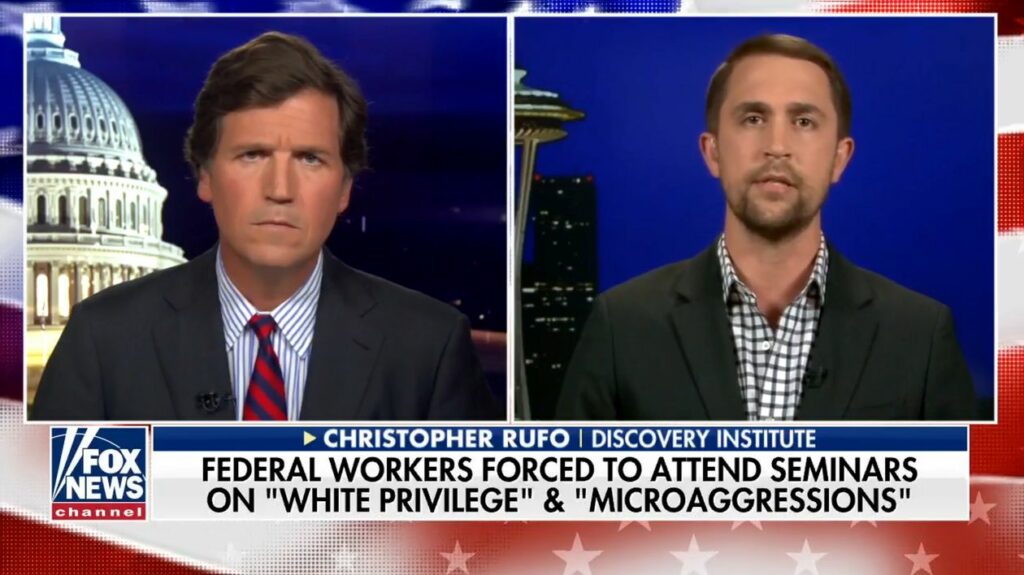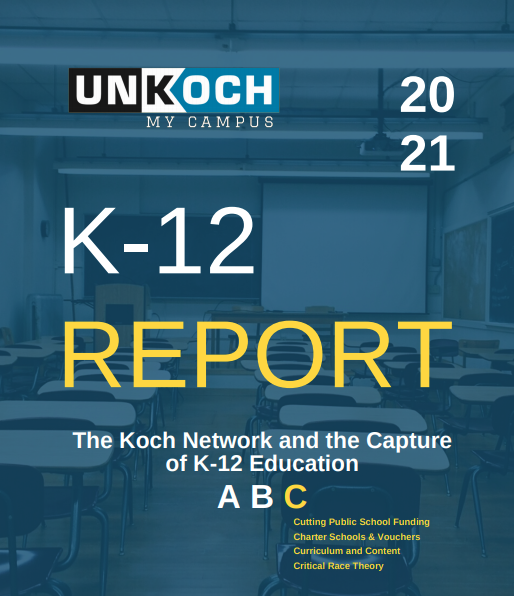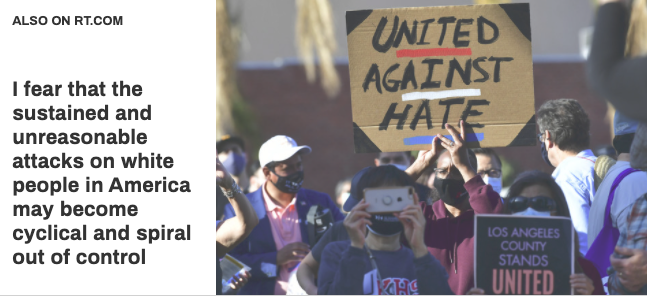A new organization known as the Free to Learn Coalition has announced that it has launched with an initial “initial seven-figure national ad campaign of well over $1 million” to combat what it describes as political influence in US schools. According to the announcement:
WASHINGTON, June 24, 2021 /PRNewswire/ — Today, the Free to Learn Coalition launched with an initial seven-figure national ad campaign of well over $1 million advocating for classrooms independent from political influence. The ad will air nationally on cable and in local markets in New York, Virginia, and Arizona, as schools across the nation have become increasingly political while the U.S. falls behind other nations in basic skills like reading, writing, math, and science. The ad specifically calls out Grace Church School in New York, Fairfax County Public Schools in Virginia, and the Peoria Unified School District in Arizona. The Free to Learn Coalition is a non-partisan organization established to support parents, caregivers, and community organizations in their advocacy for quality K‑12 education. The coalition supports the basic principle that students should be Free to Learn: Free to ask questions, free to develop individual thoughts and opinions, free to think critically of ideas and concepts, and free to achieve. All while being free from pressure or requirements to subscribe to a singular worldview. This principle is the backbone for adequately preparing students for life outside the classroom. “After a year of virtual learning and having a front-row seat in the classroom, parents are waking up to the increasingly political climate in their children’s schools,” said Alleigh Marré, President of the Free to Learn Coalition. “As we grow our partnerships with parent and community groups, the Free to Learn Coalition will provide a platform and tailored resources to those ready to take on political activism by school boards and administrators.”
US media has reported that the ad campaign blames declines in US students’ educational performance on a “political curriculum.”
The Free to Learn Coalition website describes the organization as:
…a nonpartisan organization established to support parents, caregivers, and community organizations in their advocacy for quality K‑12 education.
Alleigh Marre, President of the Coalition, told US media that the organization and its ad campaign are funded by:
… private donors who oppose critical race theory and aim to organize parent groups to that end.
While it was not possible to identify these donors nor even where or if the Free to Learn Coalition is registered, there is good reason to believe that the group is, in fact, a Republican Party disinformation effort. Based on her LinkedIn resume, Alleigh Marre can be characterized as a Republican operative who during 2015–2016 was National Press Secretary for the National Republican Senatorial Committee. Although early in her career, Marre held a variety of positions on the staff of various moderate Republicans, from 2016–2019, she held positions in the Trump Administration including as part of the Trim Presidential transition team and as National Spokesperson for the U.S. Department of Health and Human Services and Senior Advisor & Chief of Staff to the Secretary of the Air Force. Her resume lists her current role as the Founder of HIckory Strategies, described on its website as a media management/PR firm.
A US educational publication defines Critical Race Theory (CRT) as follows:
Critical race theory is an academic concept that is more than 40 years old. The core idea is that racism is a social construct, and that it is not merely the product of individual bias or prejudice, but also something embedded in legal systems and policies. The basic tenets of critical race theory, or CRT, emerged out of a framework for legal analysis in the late 1970s and early 1980s created by legal scholars Derrick Bell, Kimberlé Crenshaw, and Richard Delgado, among others. A good example is when, in the 1930s, government officials literally drew lines around areas deemed poor financial risks, often explicitly due to the racial composition of inhabitants. Banks subsequently refused to offer mortgages to Black people in those areas.
However, as the Washington Post has recently reported, one influential conservative anti-CRT activist has tweeted that his goal was to use CRT as a catchall concept “to annex the entire range of cultural constructions that are unpopular with Americans. Conflicts over CRT have rapidly escalated in the US, apparently stoked by what NBC news describes as the rise of national groups aiming to disrupt education on face and gender and aided by “conservative think tanks, law firms and activist parents”:
Conflicts like this are playing out in cities and towns across the country, amid the rise of at least 165 local and national groups that aim to disrupt lessons on race and gender, according to an NBC News analysis of media reports and organizations’ promotional materials. Reinforced by conservative think tanks, law firms and activist parents, these groups have found allies in families frustrated over Covid-19 restrictions in schools and have weaponized the right’s opposition to critical race theory, turning it into a political rallying point. While the efforts vary, they share strategies of disruption, publicity and mobilization. The groups swarm school board meetings, inundate districts with time-consuming public records requests and file lawsuits and federal complaints alleging discrimination against white students. They have become media darlings in conservative circles and made the debate over critical race theory a national issue.
In the absence of any transparency concerning the Free to Learn Coalition, there is every reason to believe that the group and its ad campaign are yet another addition to the growing disinformation surrounding CRT and its role in the US school system, supported by rightwing elements in the US.
The Global Influence Operations Report (GIOR) reported yesterday that the Russian TV channel known as RT (formerly Russia Today) has jumped into the growing controversy over CRT in the US.












